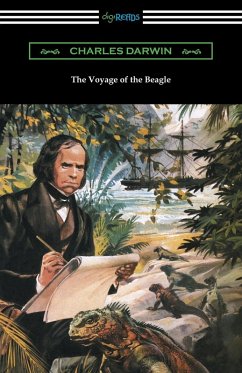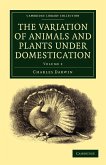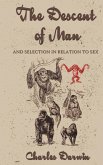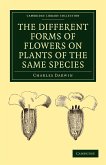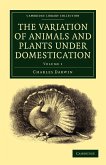Also known as Charles Darwin's "Journal of Researches," "The Voyage of the Beagle" is an exquisite travel memoir, a detailed scientific journal, and the foundation for one of the most important scientific discoveries of the 19th century. It is the account of Darwin's time aboard the HMS Beagle, which set sail from Plymouth Sound on December 27, 1831 under the command of Captain Robert FitzRoy. Published in 1839 along with other accounts of the voyage, Darwin's scientific volume makes many detailed and brilliant observations in the fields of biology, geology, and anthropology; observations that would later lay the groundwork for his theory of evolution by natural selection. The Beagle's trip of exploration and discovery was originally planned to last for only two years, but instead lasted nearly five years. Darwin used this time to exhaustively observe and record the flora and fauna he found on land and at sea. Captured in fascinating detail are the volcanoes and unusual animals of the Galapagos, the mesmerizing coral reefs of Australia, and the rugged beauty of Patagonia. A classic and pivotal scientific work, "The Voyage of the Beagle" provides powerful insight into the observations that led Darwin to his groundbreaking theories. This edition is printed on premium acid-free paper.
Bitte wählen Sie Ihr Anliegen aus.
Rechnungen
Retourenschein anfordern
Bestellstatus
Storno

